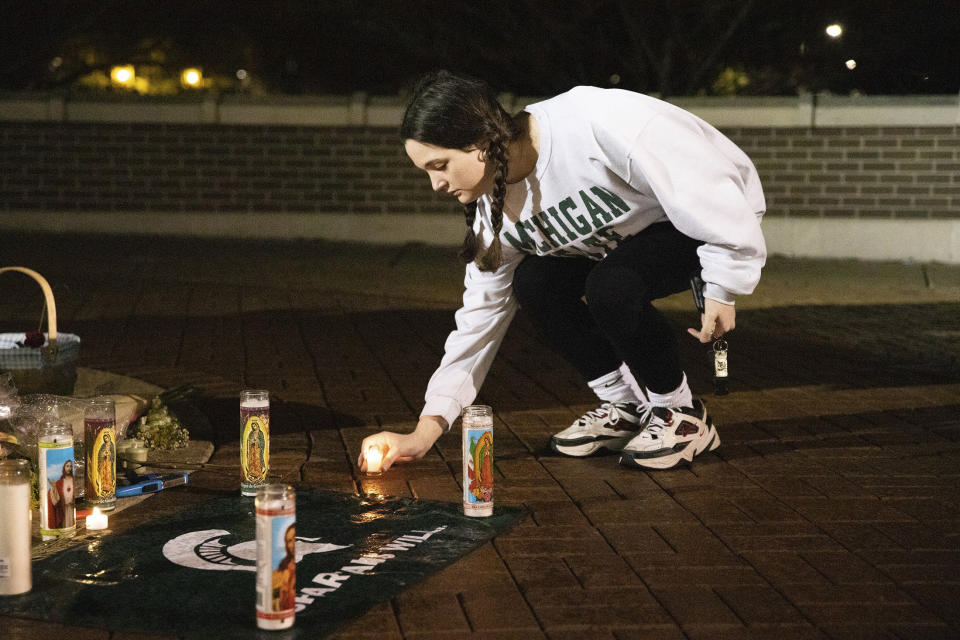Police hunt for a motive in MSU shooting
Police were still hunting for a motive Wednesday as the Michigan State University community grapples with the aftermath of the deadly shooting that left three students dead and five wounded.
Three students — Alexandria Verner of Clawson; Brian Fraser of Grosse Pointe; and Arielle Anderson, also of Grosse Pointe — were killed in the deadly shooting that unfolded Monday night across two locations on the MSU campus in East Lansing. Five other students were critically wounded and continue to receive medical care.
As of early Wednesday, it still remained unclear why the gunman, identified by police as Anthony Dwayne McRae, 43, who had no apparent affiliation with MSU, carried out the attack on the school's campus. The gunman then led authorities on a manhunt that ended when he fatally shot himself after a confrontation with law enforcement officials in the adjacent city of Lansing, police said.
MSU police said Tuesday that authorities had found a note on him and that it was being investigated. The contents of the note were not immediately clear, however.
As police look to determine why the suspect carried out the deadly shooting at the school, his father has described how he watched his son turn "evil and mean" following the sudden death of his mother two years ago.
Michael McRae said that his son became reclusive and that his demeanor and outlook on life "changed" after Linda McRae died of a stroke Sept. 13, 2020. He said his son quit his job at a warehouse, where he had loaded refrigerators into delivery trucks, and stayed in his room all day playing video games.

He said he did not know why his son targeted MSU, but said he believed he may have been trying to apply for a job there.
Michael McRae said his son had no history of violence that he was aware of.
“He wasn’t like that,” he said. “He was no danger to nobody like that. He never did anything crazy like this.”
Michigan Attorney General Dana Nessel said the suspect had not been eligible to have a gun due to a weapons offense conviction several years ago.
In June 2019, he was charged with a felony, carrying a concealed weapon, which has a maximum penalty of five years behind bars, and a misdemeanor, possession of a loaded firearm in or upon a vehicle, which could have been punishable by up to two years in jail. He pleaded guilty to the misdemeanor and was sentenced to probation and discharged in May 2021.
Nessel said on MSNBC on Tuesday that the gunman “did have a weapons offense conviction from a few years ago. He was ineligible to possess or purchase a firearm.”
“So one of the things that we’re going to need to know is how did he get that weapon?” she said.
Authorities have asked people to send in any information they have, including photos and videos related to the shooting.
The FBI and the Michigan State University Department of Police and Public Safety asked that anyone with information submit it via an online form.
This article was originally published on NBCNews.com

